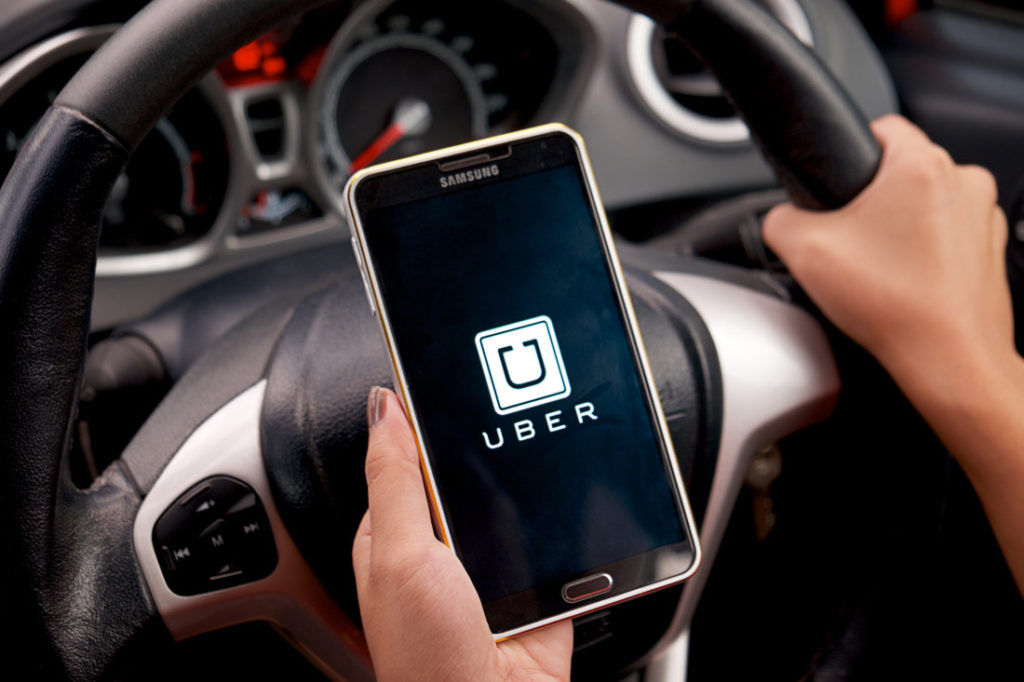Uber and Lyft are almost here, Buffalo, and here’s why it took so long.

It’s almost here, Buffalo. In less than two months, ridesharing will be just an app download away. Uber and Lyft are set to become live in Western New York on or before the 4th of July.
Many Buffalonians feel as though we are one of the last cities in the country to have ridesharing companies like Uber and Lyft. So, Tiveron Law decided to dig deeper and find out what took so long.
In New York Insurance Law, ridesharing companies like Uber and Lyft are technically labeled as transportation network companies.
While there are major differences between taxis and ridesharing companies’ operations, as consumers, we will mainly notice the differences in how each is ordered, according to Scott Michael Duquin of Tiveron Law.
Instead of calling for a taxi or even hailing one down, which isn’t the normal means in Buffalo as opposed to New York City, one would download the app and request a ride via their mobile device.
Ridesharing companies also screen drivers, although their method differs from the process in which someone must follow to drive a taxi.
“Taxis are regulated, and there’s a whole process to become a driver, and depending on the state or jurisdiction you’re in, you’d need a special taxi cab license. Uber doesn’t have those same regulations, but they do pre-screen their drivers and allow for passengers to leave reviews. One group is regulated by the government and the other by a company,” Duquin said.
According to Uber’s website, to become a driver you must fill out a survey about yourself and your vehicle to begin the screening process. You also need to upload your license, registration, proof of insurance, and possibly additional information if needed depending on your area.
And so, the million-dollar question is what took New York State so long to bring ridesharing companies to the area? The main answer: Insurance Policies.
“It turned out to be an insurance issue,” Duquin began, “Generally, insurances are regulated by the states. In New York State, we have an extensive body of insurance law, and part of that law deals with automobile insurance. Here, there are certain minimums which have to be met and offered.”
Recently, a new piece of legislation was passed which essentially re-wrote some of the insurance laws paving the way for ridesharing companies to make their way to Western New York.
According to Duquin, previously, the transportation network companies didn’t fit into New York State’s insurance laws. The policies Uber possessed were once illegal in New York.
“New York passed a couple new sections of the insurance law specifically called the Transportation Network Group Insurance Policy. So, now those policies are permitted and they can operation in New York,” Duquin said.
Whether or not New York politics also played a part in the delay also remains to be seen. However, it’s not unimaginable.
“The process to pass legislation shouldn’t be overly complicated. The government can act fast when it wants to especially with a little initiative,” Duquin said.
As a driver, you are covered under Uber’s policy while on the clock, but not when you are driving for personal reasons.
As stated on Uber’s site, “Before you accept a request, while you drive to pick up a rider, when a rider is in your car, you are covered by our insurance…” To read all the coverage guidelines for an Uber driver, you may click here.
“In the future, you might also see carriers like Geico, State Farm, Progressive take a look at their policies and maybe rewrite how they define primary coverage and other insurance clauses in regards to ridesharing drivers,” Duquin said.
It certainly seems as though Uber and Lyft will have a large impact on Western New York once it arrives. However, there should be some positive impacts, too.
According to Melissa B. from Lockport, “It’s (ridesharing) cheaper than a DWI. I’ll mostly use it for rides home after I’ve been drinking. Or, to concerts and sporting events, so I don’t have to worry about trying to find a parking spot and walking a half mile.”
Ridesharing companies will hopefully keep prices competitive, too, which would only benefit the consumer.
Uber and Lyft are coming this summer whether we like it or not. Are you ready, Buffalo?
